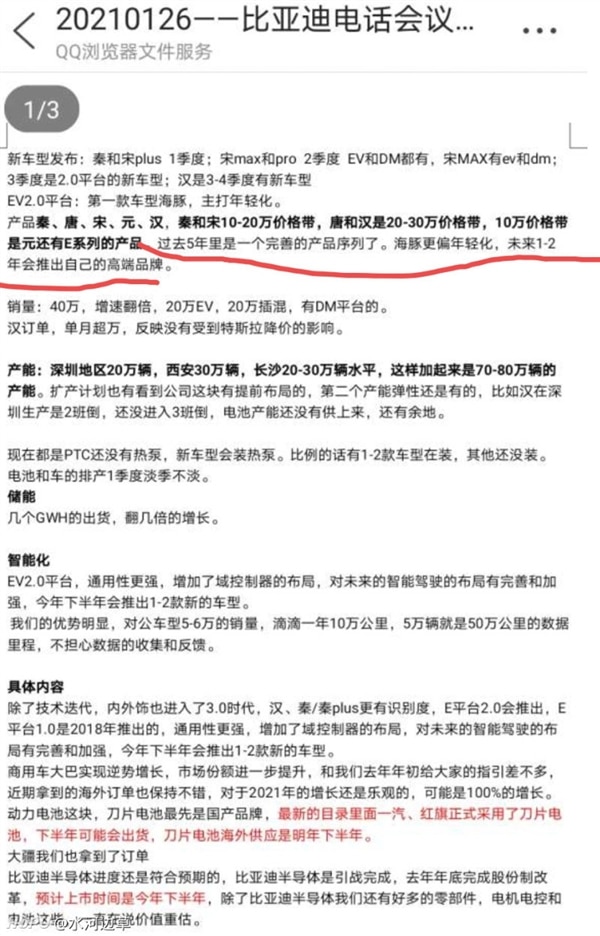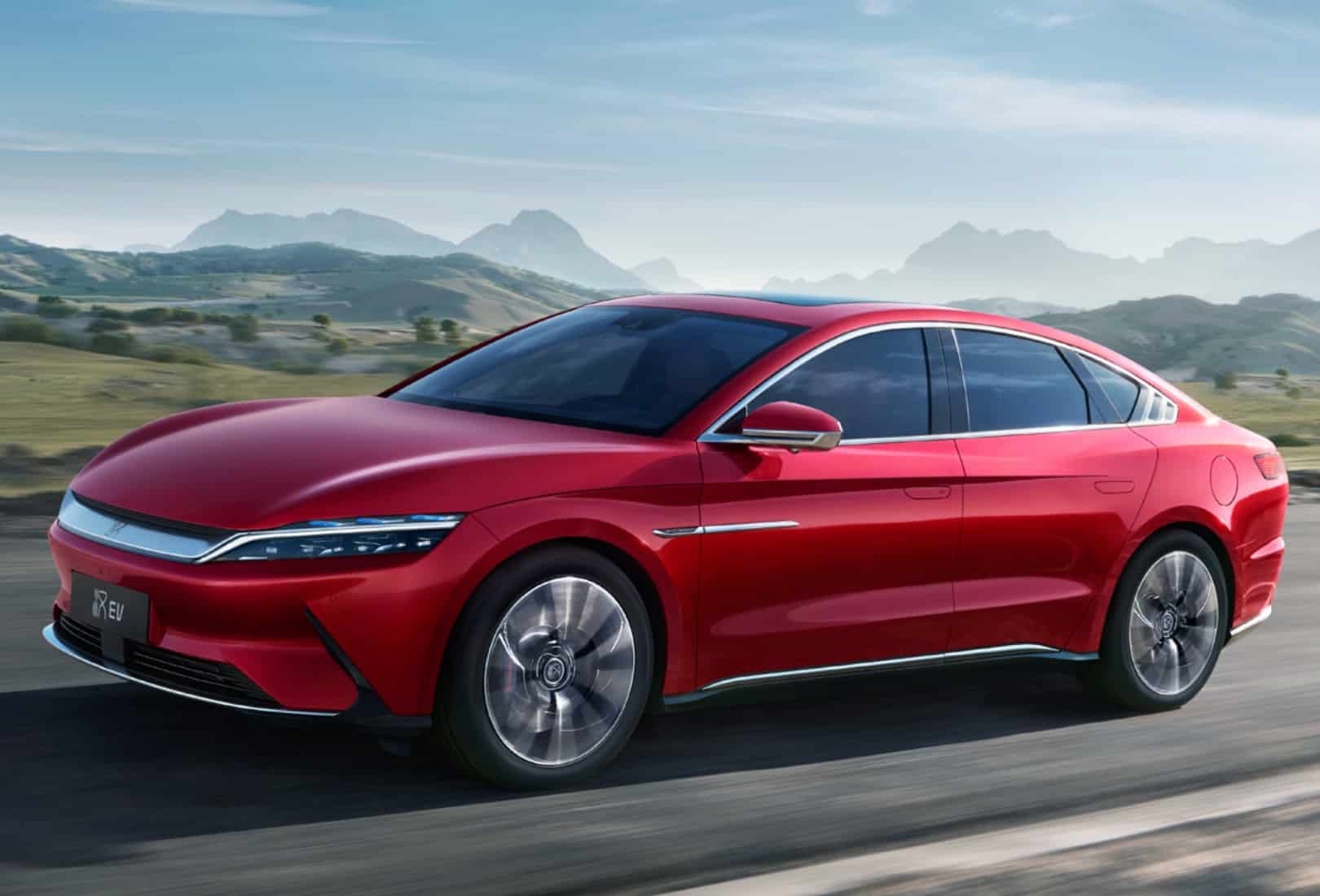Warren Buffett-backed Chinese electric car company BYD plans to launch a separate premium new energy vehicle brand in 2022, with products based on a new platform and a separate dealer network, according to Yicai.com.
The report cited sources familiar with the matter as saying that BYD executives have decided to recruit new dealership investors and build new dealership channels after internal discussions concluded that existing dealership capacity could not support the "hardware and service premiums" needed for the premium brand.
The source said BYD's new premium brand will be built on the EV2.0 platform, with the first model internally named "Dolphin" and scheduled to hit the market in 2023.
BYD did not deny this, only responded that it would not comment, according to nbd.com.cn.
A unit of Warren Buffett's Berkshire Hathaway has held a stake in BYD since 2008. As of June 2020, Berkshire held 8.25% of BYD, or nearly 25% of its Hong Kong-listed stock, according to BYD's half-year report.
Earlier today, a document circulating on the Internet mentioned BYD's new vehicle release plan for 2021, as well as its production capacity plan and future direction, including new vehicles to be released in the first and second quarters, a new platform EV2.0 in the third quarter, and a new model of Han in the fourth quarter.
After releasing the new platform, BYD plans to launch its premium brand in the next 1-2 years. This BYD meeting minutes show that it did not mention the specific development plan of this brand.
BYD has a good appeal among local brands, and the high-end model Han is widely welcomed, mentioning BYD's potential to enter the high-end market.
In comparison, however, Geely and Great Wall Motors have long brought Lynk & Co and WEY. entering 2020, SAIC, Changan Automobile, and Dongfeng Group have also set up high-end brands one after another, which appears that BYD's plan to launch its own high-end is a bit behind.
From the current BYD product pipeline, there are a total of five models with dynasty as the naming convention, namely Qin, Shang, Song, Tang, and Han, of which Shang is BYD's commercial vehicle brand, while Qin, Song, Tang, and Han, the four dynasty naming conventions, represent different segments of passenger car models.
There is media speculation that BYD's high-end brand may be named directly after the "Dynasty".
BYD has registered the trademark of "Dynasty" in 2015 and then submitted it again in August and October 2017, but it was rejected because the trademark of "Dynasty" registered by BYD has long been registered by other companies.
After nearly 5 years of struggle between BYD and the trademark holder, BYD regained the trademark of "Dynasty".
Over the past year, BYD has been making frequent moves in technology, products, and capital markets.
In March 2020, BYD released blade battery technology, while maintaining the safety advantages of lithium iron phosphate, while increasing the capacity of the battery per unit volume.
In July 2020, BYD released its flagship pure electric sedan Han EV, which quickly became one of the highest-selling pure-electric sedans after its launch. in December 2020, Han EV sales were 9007 units, second only to Tesla Model 3 in terms of sales, with over 30,000 orders yet to be delivered.
BYD sold 28,841 units of all energy vehicles in December, up 120.177% year-on-year.
In January, BYD released its DM-i super hybrid platform, along with a variety of DM-i models. DM-i has fuel-saving advantages close to those of Honda and Toyota hybrid technology, but with lower model prices.
As of January 26, 2021, BYD's market capitalization has approached 700 billion yuan, reaching 693.5 billion yuan, which is currently the highest market capitalization of Chinese car companies.

